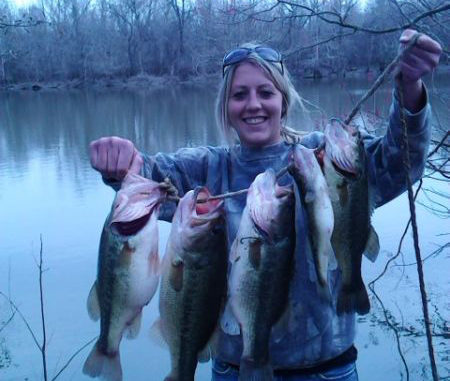
Proposed rule would allow fishermen at remote camps for consecutive days the ability to transport up to three times the daily creel limit of bass back to the boat launch
The Louisiana Wildlife and Fisheries Commission on Thursday adopted a notice of intent that would increase the possession limit for black bass in areas south of the saltwater line up to three times the daily creel limit.
Mike Wood, director of inland fisheries for the Louisiana Department of Wildlife and Fisheries, said the change is designed to allow fisherman to transport bass to the boat launch after being at a remote camp or on the water for multiple days at a time.
“We always are looking for ways to not discourage anglers and hunters from doing their thing. Really, that’s most of the purpose here,” said Wood, who indicated the amendment could go into effect by mid-summer if it passes legislative review. “We don’t want someone to go out to their remote camp and feel like they’re hindered in any way.
“This is not a biological issue. They’re still required to comply with the daily creel limit. This is just allowing them to keep their catch legally and get it back home.”
Melissa Kaintz, operations manager for inland fisheries, said the proposed rule was prompted from public input received by the enforcement division.
“The issue is that they would go to remote camps for a weekend, and if they got their daily limit of bass in the first day they would either have to bring their bass back to the boat launch or they couldn’t keep anymore fish for the rest of the weekend,” Kaintz said. “It’s really just them asking for the ability to be able to transport those fish from one location to another without being in violation of the possession limit.”
According to a press release, fisherman would be covered under this provision only if they comply with the following rules:
1. Fisherman must hold and be in possession of a basic recreational fishing license.
2. Fisherman must be in possession of a receipt from a boat launch located south of the saltwater line that demonstrates that the fisherman has been on the water for multiple consecutive days.
3. Fish must be kept whole or whole gutted and each day’s catch must be packaged separately. Packages must be labeled with the fisherman’s name, fishing license number, date fish were caught, species of fish and number of fish.
4. Fisherman must only be in possession of his or her own fish.
5. Fisherman must not be actively fishing or engaged in fishing while transporting more than their daily creel limit.
Kaintz said the rule applies south of the saltwater line only because of the remote nature of many camps located there.
“There are some places north of the saltwater line where you might run into this, but it’s not nearly as common for people to travel by boat to a remote location and stay there for multiple days,” she said. “A lot of the camps up north are accessible by road for the most part.
“Also, we’re trying this on a limited basis south of the saltwater line so that it’s something our enforcement division can get an idea on if it’s a feasible regulation to enforce. At this time, starting it on a limited basis allows them to get an idea on if it will work without going full-blown statewide.”
She stressed the proposed rule is designed to assist anglers when they are leaving their camp and heading back to the boat launch, not for while they are actively fishing. And the daily creel limit maxes out at three days, no matter how long your trip might be.
“I like to refer to it as transporting fish. You’re not actively fishing and you’re not going from one fishing spot to the next,” Kaintz said. “You’re transporting fish from your remote location back to your vehicle.
According to the release, people can submit comments to Wood from April 20 through June 4 on the proposal, but he said he actually would begin accepting them immediately.
“I don’t want to discourage anybody from offering their opinion, so I’ll accept comments now,” Wood said. “No comments are going to be turned away.”
Interested persons can submit related comments to Mike Wood, Louisiana Department of Wildlife and Fisheries, Office of Fisheries, P.O. Box 98000, Baton Rouge, LA 70898-9000, or via email by clicking here.


